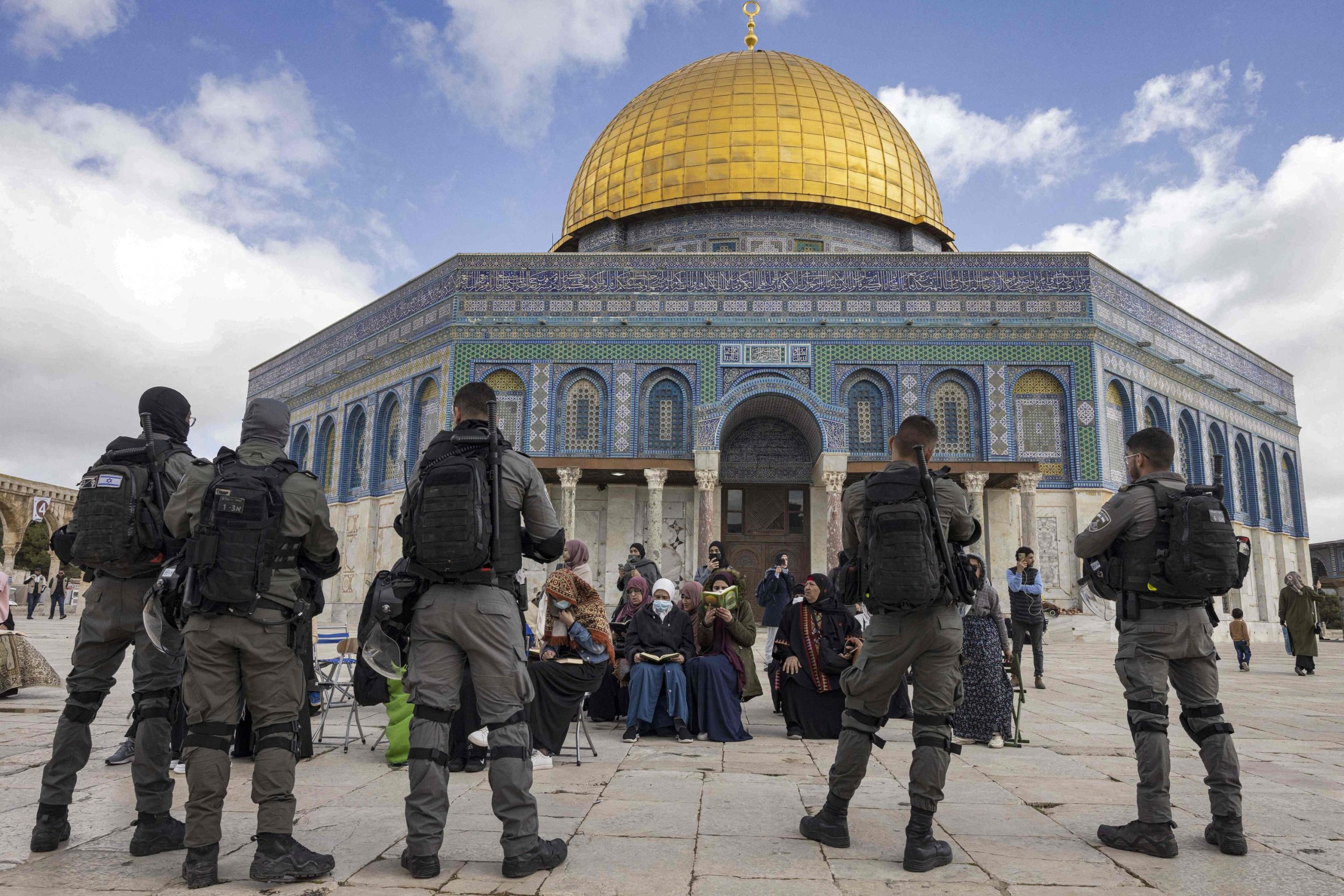Israeli Minister Itamar Ben-Gvir’s synagogue proposal at Al-Aqsa has drawn widespread condemnation and raised fears of escalating regional tensions.
The Israeli National Security Minister Itamar Ben-Gvir proposed constructing a Jewish synagogue at the Al-Aqsa Mosque compound in East Jerusalem, a site of deep religious significance to Muslims.
The recent statements by Ben-Gvir, known for his far-right views have ignited a firestorm of condemnation across the Arab world and beyond.
Qatar’s Ministry of Foreign Affairs has condemned the recent intrusion by settlers performing Talmudic rituals at Al-Aqsa under Israeli police protection, labeling it a “flagrant violation of international law” and a provocative act against Muslims globally.
Qatar’s statement also called for the international community to uphold its obligations regarding Jerusalem and to support the establishment of a Palestinian state with East Jerusalem as its capital.
His remarks have also drawn sharp criticism from within Israel.
Israeli Interior Minister Moshe Arbel condemned the proposal as “blasphemy,” emphasising that the longstanding ban on Jewish prayer at the Temple Mount is upheld by Israel’s leaders.
Defense Minister Yoav Gallant labeled Ben-Gvir’s comments as “dangerous, unnecessary, and irresponsible, raising concerns about national security” in a statement on X.
Opposition leader Yair Lapid, in a statement on X, criticized Prime Minister Benjamin Netanyahu for his inability to control his government. Lapid stated that Netanyahu’s weakness in responding to Ben-Gvir’s provocations is evident and argued that Netanyahu’s lack of effective policy and strategy threatens national security.
In response to Ben-Gvir’s push for Jewish prayers at Al-Aqsa, Netanyahu’s office affirmed that the status quo remains unchanged.
International condemnation
Saudi Arabia has also issued a statement expressing strong objections to the incursions by Israeli officials and settlers, calling for respect for religious sanctities and urging the international community to address the situation and the humanitarian crisis faced by Palestinians.
The Organization of Islamic Cooperation (OIC) condemned Ben-Gvir’s proposal and ongoing desecration of Al-Aqsa, viewing these actions as a direct challenge to holy sites and a breach of international law. The OIC demanded decisive international action to protect these sacred sites and uphold their historical and legal status.
Jordan’s Foreign Ministry condemned the proposal as a “violation of international law” and vowed to take necessary legal actions against attacks on holy sites. Jordan also stated its intention to prepare legal files to address these issues in international courts.
Palestinian President Mahmoud Abbas’s spokesperson, Nabil Abu Rudeineh, warned that changing the status of Al-Aqsa could lead to a regional religious war, stressing that the area of al-Haram al-Sharif belongs to Muslims only. As reported by Wafa.
Egypt’s Foreign Ministry called on Israel “to adhere to its obligations as an occupying power and cease provocative statements that escalate tensions”.
According to Egyptian Ahram Online report, the Egyptian Foreign Ministry said that irresponsible statements about holy sites in the Palestinian territories make the situation worse. They warned that “these remarks hinder ceasefire efforts and threaten the future of a two-state solution with East Jerusalem as the capital of an independent Palestinian state”.
In a recent interview with Army Radio, Ben-Gvir suggested that if given unrestricted power, he would place an Israeli flag at the site and support building the synagogue.
Currently, the site permits visits from Jews and other non-Muslims but prohibits prayer and religious symbols, a status quo that the Ben-Gvir has frequently challenged.







